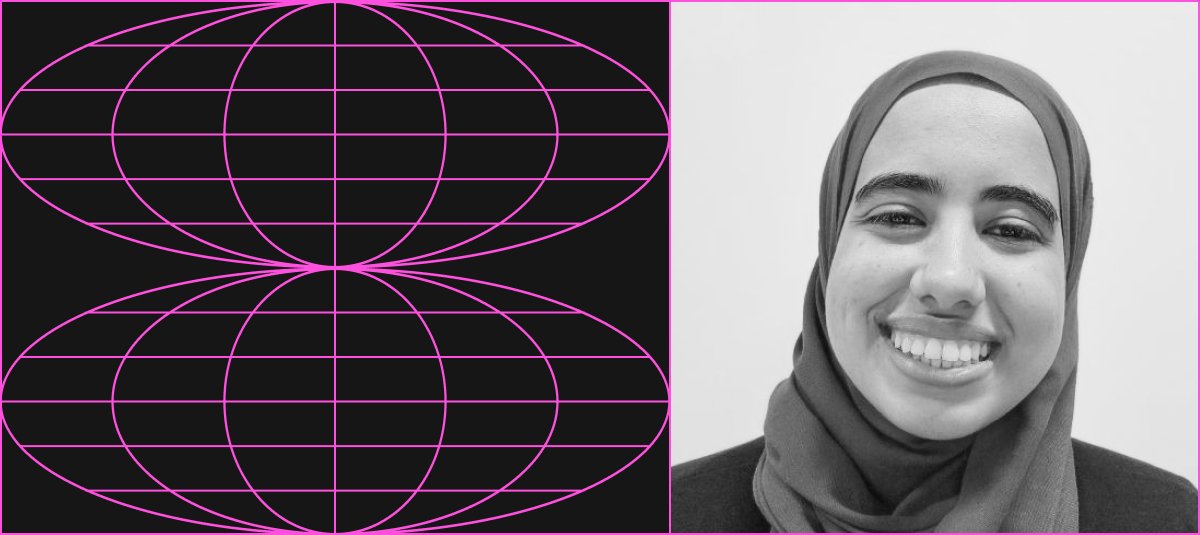
Speaker Interview: Alia ElKattan
🪩 DISCO:
What does digital sovereignty mean to you? How do you (try to) live a digitally sovereign life?
🎤 Alia ElKattan:
Digital sovereignty to me is to understand how the technology I interact with, consciously or unconsciously, affects my life in my own personal and societal contexts in order to have the choice of mindfully utilizing it in ways that are beneficial to me, advocating for changes, or seeking alternatives. Beyond my personal efforts to be educated and vigilant where needed, this necessitates having access to transparency on how platforms are being built and deployed and how my data is collected and used.
🪩 DISCO:
As we witness rapid technological breakthroughs in the field of AI, which digital rights do you consider the most endangered?
🎤 Alia ElKattan:
Pathways to seeking accountability and progress are endangered when we use the technological breakthroughs in AI as a justification for over-employing AI in decision-making processes even when it is inadequate and incompatible. There are many domains in which this can be dangerous, particularly for the surveillance, policing, and suppression of underserved and oppressed populations.
🪩 DISCO:
What other threats to digital rights are you worried about? Do you have any insights on how we can address them as a society?
🎤 Alia ElKattan:
I’m worried about the escalating complexity of scams and disinformation leveraging increasingly powerful LLMs, which will disproportionately harm those with lower digital literacy. I believe countering any shame or guilt associated with falling into scams or disinformation is imperative to ensuring people feel safe, supported, and comfortable disclosing their experiences and seeking support and clarification, and thus helping us build better tools for safety and protection as well as more advanced and resilient public education.
🪩 DISCO:
How can events such as DISCO Slovenia 2023 help foster international collaborations and partnerships in promoting digital sovereignty and protecting civil liberties in the interconnected world?
🎤 Alia ElKattan:
Events like DISCO can be a space for sharing expertise across geographic and disciplinary borders to enable translational efforts in communicating learnings between researchers, journalists, activists, and the general public. Robust communities for collaboration and knowledge exchange are important on technical, academic, and journalistic levels, but are also how we find the strength, hope, and resilience to advocate for progress together. It helps to remember that there are many other people who care as much as you do, and are working in parallel to build a brighter future for digital rights.
🪩 DISCO:
What would you consider responsible and inclusive engineering? What are the key ethical considerations that should guide the development and deployment of emerging technologies to ensure digital sovereignty and safeguard human rights?
🎤 Alia ElKattan:
Responsible engineering centers human problems and needs and questions what technology is appropriate to build and deploy appropriately in the first place rather than attempting to reverse engineer ways to fit human needs into technical hype and trends that prioritize what those with capital are excited about. Upon figuring out if this technology is even needed or appropriate for a given context, inclusive engineering questions how it affects different populations differently, looks out for the historically and presently underrepresented, and is proactive in the inclusivity of different perspectives and experiences from the data collection level to the final stages of production. Finally, responsible deployment ensures avenues for seeking accountability, progress, and meaningful engagement with those interacting with the technology including through reporting personal experiences and harms.
🪩 DISCO:
What advice would you give to individuals on how to responsibly navigate the online environment in regard to their privacy and digital rights? Are there any specific tools that you would recommend?
🎤 Alia ElKattan:
A basic step is using browsers that prioritize privacy from the ground up, like Mozilla Firefox or, more recently, Arc Browser. Blacklight is a cool tool by The Markup that will scan and reveal trackers on any website you use. I recommend checking out The Markup’s work more generally, they do excellent investigative journalism on the impact of technology on society and build great tools for individuals and journalists to do their own research.
🪩 DISCO:
Can you recommend a book that we should all read before the conference, a podcast that we should subscribe to and/or a website that we should bookmark?
🎤 Alia ElKattan:
Alaa Abdelfattah is an Egyptian software developer, blogger, and activist who has advocated strongly for digital and civil rights, and has been a political prisoner for nearly a decade. His speeches and writing on digital rights and politics are still timely and insightful years later. I recommend his RightsCon 2011 keynote speech and his 2019 letter to RightsCon, both of which were recently compiled as part of a book collection of his writings over the past decade titled “You Have Not Yet Been Defeated.”
🪩 DISCO:
Which disco tune should we definitely add to the opening party playlist?
🎤 Alia ElKattan:
This is not very original but I must go with September by Earth, Wind, and Fire because I appropriately saw these questions on the 21st of September.